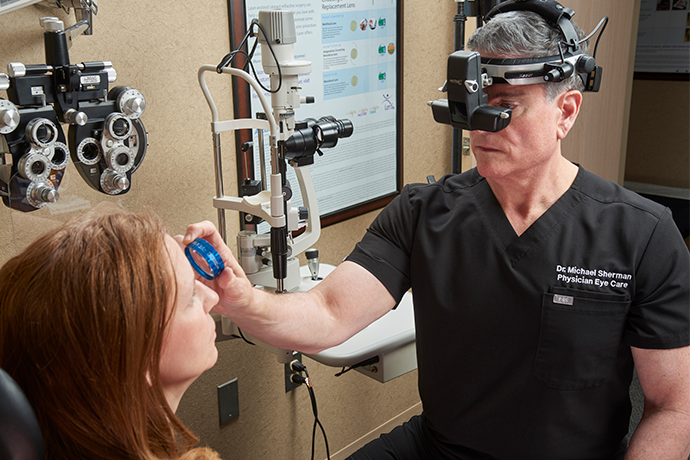Floaters, Flashes & PVD?
Eye floaters look like black or gray specks, strings or cobwebs that drift about when you move your eyes. Most eye floaters are caused by age-related changes that occur as the jelly-like substance inside your eyes begins to break down. When this happens, microscopic fibers clump together and cast tiny shadows on your retina, which you see as floaters. Flashes are caused when these clumps pull on your retina causing flashing lights. While it may seem as if these gel-like clumps are on the surface of your eye, they are actually located inside your eye. When patients experience a large floater in the center of their vision it can be a sign of a posterior vitreous detachment (PVD). PVD is caused by the gel-like substance detaching from the retina and flowing freely within the eye. PVD, floaters, and flashes are not a sign of vision loss but they can be a precursor to retinal detachment. If you are experiencing these symptoms please call our office to schedule a comprehensive eye exam with Dr. Sherman immediately.

